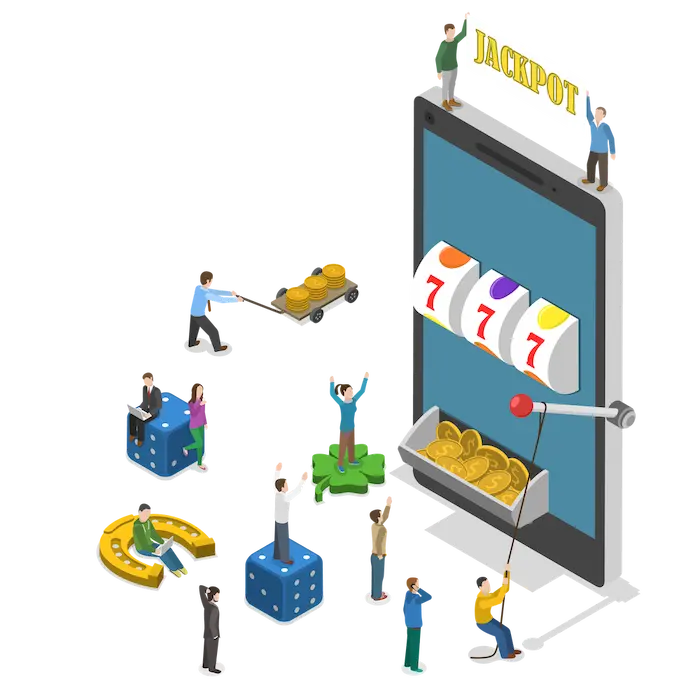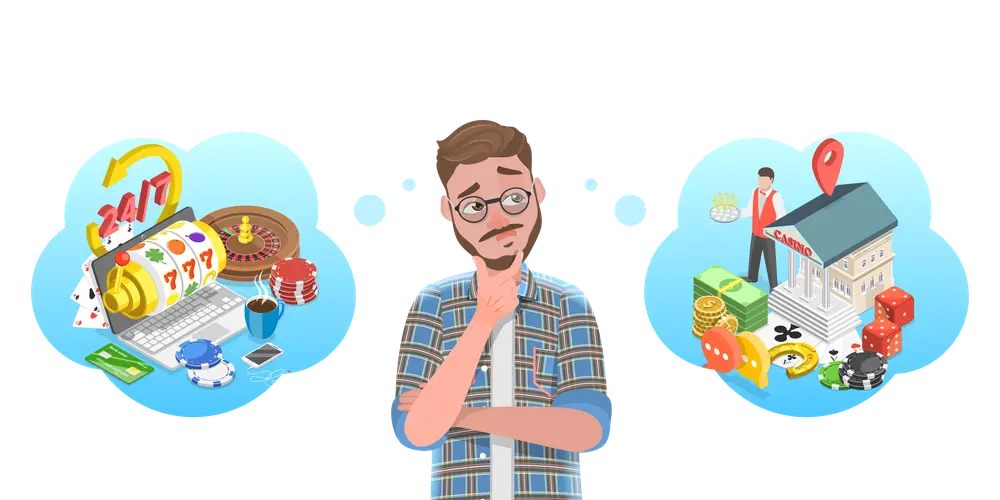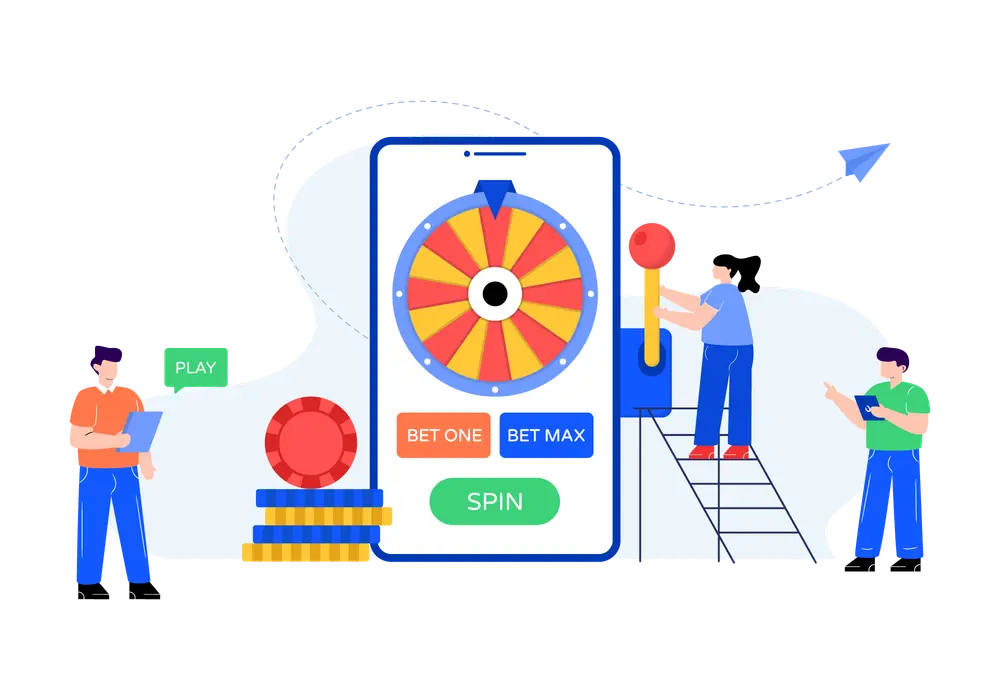































These Aussie online casinos stand out in 2025 for their exceptional reputation, player-first design, and massive game libraries. Known for delivering fast payouts, generous bonuses, and smooth mobile experiences, they’re among the most trusted real money casino sites in Australia.

Leading the way are platforms like VegasNow Casino, NeoSpin, and Let’s Lucky Casino—all of which regularly update their game portfolios with the latest pokies, jackpots, and live dealer titles from top-tier providers.
Players at these sites can expect attractive welcome bonuses, consistent reload offers, and regular promotions tailored to Aussies. Online gambling sites such as SpinRise Casino, HeapsOfWins, and Spin Samurai also offer standout benefits like 24/7 customer support, lightning-fast withdrawals, and compatibility with AUD, crypto, and local payment methods like PayID.
When it comes to the best online casinos Australia has on offer in 2025, Lucky Ones and Skycrown continue to earn praise from seasoned players and reviewers alike—thanks to their commitment to fair play, responsible gambling tools, and VIP-level service.
Australia is home to some of the most exciting online pokies, offering players a thrilling gaming experience with real money wins. Whether you're a beginner or an experienced player, Australian online pokies provide a wide variety of themes, features, and jackpots to keep the excitement going.
Choose a Reputable Online Casino: Start by selecting an online casino that is licensed and regulated by a recognized authority, such as the Australian Communications and Media Authority (ACMA). This ensures that the casino operates legally and adheres to strict standards of fairness and security.
Click on the “Play Now” Button: Once you’ve chosen your preferred online casino, look for the “Sign Up” or “Register” button on the homepage. Clicking this will take you to the registration form.
Fill Out the Registration Form: You’ll need to provide some personal details, such as your name, address, email, and date of birth. This information is necessary to verify your identity and ensure you meet the legal age requirements for online gambling.
Create a Username and Password: Choose a unique username and a strong password to secure your online casino account. Make sure your password is difficult to guess and includes a mix of letters, numbers, and special characters.
Verify Your Account: To comply with legal requirements and ensure the security of your account, you may need to verify your identity. This typically involves providing identification documents, such as a driver’s license or passport. Some casinos may also require proof of address.
Make a Deposit: Once your account is verified, you can make your first deposit. Choose a payment method that suits you, such as credit cards, e-wallets, or bank transfers. Most online casinos offer a variety of secure payment options to cater to different preferences.
By following these steps, you’ll be ready to start enjoying the exciting world of online casino games in no time.
Choosing the best Australian online casino can feel overwhelming, especially with the wealth of options available to Aussie players. At Topio Networks, we simplify this process by breaking down the most crucial aspects that define the best online casino sites. Whether you’re after the best games, swift payouts, or excellent customer service, keeping these key criteria in mind will help you make an informed decision.
Additionally, considering the variety and benefits offered by online gambling sites, such as enticing bonuses, game selection, and secure payment options, is essential when selecting a top-tier casino.

One of the most crucial aspects of online casino safety is ensuring the platform operates under a valid gaming license from a reputable authority. A licensed casino offers players peace of mind, knowing that the games are fair and the operator is regulated.

When selecting an online casino, the range and quality of games are essential to providing an engaging and rewarding experience. The best casinos cater to all types of players, offering not only the ever-popular pokies but also classic table games like blackjack, roulette, and baccarat. A critical factor in determining game quality is Return to Player (RTP), which plays a significant role in shaping a player's chances of winning over time. Casinos that offer high-RTP games tend to provide a more attractive option for discerning players.
From traditional 3-reel slots to advanced video and progressive jackpot pokies, a top-tier online casino australia should offer hundreds of options to keep the gaming experience fresh and diverse. However, beyond the variety, players should pay attention to the RTP of the games offered.
Look for a mix of classic table games and live dealer options, where players can engage in real-time gameplay with professional dealers. These games often feature different RTPs depending on the rules and variations.

When choosing an online casino, the best online casino bonuses Australia has to offer play a significant role. Welcome bonuses, deposit bonuses, and free spins can add substantial value to your initial deposit and overall gaming experience. Before accepting any bonuses, you should read the terms and conditions carefully to understand the wagering requirements and other restrictions.
Australian online casino promotions can also provide additional value and opportunities for players. By comparing different online casinos and their bonus offers, you can maximize your bankroll and enhance your chances of winning.
Important considerations:

For hassle-free online gambling, the best online casino payment methods are paramount. The best online casinos offer a variety of payment methods, including credit and debit cards, e-wallets, and cryptocurrencies. These options ensure that deposits and withdrawals are processed efficiently and securely.
Secure online casino transactions are essential for player confidence. Additionally, transparent transaction fees and clear guidelines on deposit and withdrawal limits contribute to a better user experience.

Fast payouts are a hallmark of a reputable online casino. Players want to enjoy their winnings without having to wait for days. A casino that offers fast, reliable withdrawals, especially through modern methods like e-wallets or cryptocurrencies, demonstrates a commitment to player satisfaction.

Mobile gaming is more important than ever, with a majority of players opting to play on smartphones and tablets. A good online casino must offer a seamless mobile experience, either through a responsive website or a dedicated app.

Responsive and helpful customer support is vital when gambling online. The top online casinos provide 24/7 assistance through multiple channels, ensuring you can resolve any issues as quickly as possible.

A casino that caters to its players' needs creates a more enjoyable and engaging experience. Today's latest trends have created a demand for players to look for platforms that prioritize user experience, transparency, and responsible gaming.
Online pokies – or online slots, as they call it outside the Land Downunder - are without a doubt the heartbeat of every top online casino in Australia. Whether you’re in it for the free spins, thrilling bonus rounds, or just love a good Aussie-themed slot, there’s no shortage of pokies action available at your fingertips.
 What Are Online Pokies?
What Are Online Pokies?“Pokies” is the local lingo for slot machines, and they’ve evolved from simple pub classics to high-tech, feature-packed online experiences. At any trusted Australia online casino, you’ll find thousands of pokies—from retro three-reelers to complex Megaways pokies with massive win potential.
 Real Money Online Pokies Australia: What to Expect
Real Money Online Pokies Australia: What to ExpectIf you're looking to win real money playing pokies online, here’s what Aussie players can expect:
Whether you're a casual spinner or chasing jackpots, real money pokies online offer excitement for every budget and player style.
 Pokie Types & Key Features
Pokie Types & Key FeaturesThere’s more than one way to spin the reels. Here’s a quick look at the major pokie types found at Aussie casinos:
Type | Description |
Classic Pokies | Simple 3-reel games with old-school charm—great for beginners |
Video Pokies | Feature-packed with 5+ reels, rich themes, and free spin bonuses |
Megaways Slots | Thousands of ways to win with dynamic reel sets |
Jackpot Pokies | Fixed or progressive jackpots with massive payout potential |
Bonus Buy Pokies | Lets you purchase instant access to bonus rounds |
 Top Features of the Best Online Pokies
Top Features of the Best Online PokiesWhen choosing the best online pokies Australia has on offer, look for these features:
 High RTP (Return to Player) – 95%+ gives you better long-term value
High RTP (Return to Player) – 95%+ gives you better long-term value Progressive Jackpots – Massive pooled prizes with the chance for million-dollar wins
Progressive Jackpots – Massive pooled prizes with the chance for million-dollar wins Free Spins and Bonus Rounds – Triggered through scatters or features
Free Spins and Bonus Rounds – Triggered through scatters or features Mobile Compatibility – Fully optimised for iOS and Android
Mobile Compatibility – Fully optimised for iOS and Android Game Fairness – Certified RNGs and audit seals from labs like eCOGRA
Game Fairness – Certified RNGs and audit seals from labs like eCOGRA Top Online Slots Providers in Australia
Top Online Slots Providers in AustraliaAussie players trust pokies from the industry’s leading developers. These studios are known for sharp graphics, creative mechanics, and fair gameplay.
Provider | Known For | Top Pokies | RTP Range |
Pragmatic Play | Feature-rich games with local appeal | Big Bass Bonanza, Gates of Olympus | 95–96.7% |
NetEnt | Sleek design + classic hits | Starburst, Gonzo’s Quest | 96–98% |
Microgaming | Huge jackpot network | Mega Moolah, Immortal Romance | 94–97% |
Play’n GO | Fast-paced and mobile-first slots | Book of Dead, Reactoonz | 94.2–96.5% |
BTG (Big Time Gaming) | Inventor of Megaways mechanics | Bonanza, Extra Chilli | 96–97.7% |
Relax Gaming | Innovative + high-volatility favourites | Money Train 2, Temple Tumble | 96–98% |
 Popular Pokie Themes That Aussies Love
Popular Pokie Themes That Aussies LoveThemed pokies are more than eye candy—they keep gameplay fresh and relevant. These are some Aussie favourites:
 Outback Adventures – Boomerang Bonanza, Kanga Cash
Outback Adventures – Boomerang Bonanza, Kanga Cash Myth & History – Book of Dead, Vikings Go Berzerk
Myth & History – Book of Dead, Vikings Go Berzerk Sci-fi & Futuristic – Starburst XXXtreme, Reactoonz
Sci-fi & Futuristic – Starburst XXXtreme, Reactoonz Luxury & Glamour – Mega Fortune, Royal Reels
Luxury & Glamour – Mega Fortune, Royal Reels Dark & Gothic – Immortal Romance, Blood Suckers
Dark & Gothic – Immortal Romance, Blood Suckers Mobile Pokies – Spin On the Go
Mobile Pokies – Spin On the GoMost Australian online casino players now game on the move. Luckily, top pokies are:
A few casinos also offer dedicated apps, but for most players, instant-play pokies work flawlessly on iOS and Android.
Choosing the right online pokies isn’t just about flashy graphics or jackpot size—it’s about finding games that align with your play style, risk tolerance, and budget. In this section, we’ll explore key factors like RTP (Return to Player), volatility levels, and practical strategies to help you make smarter, more enjoyable choices at your favourite Australian online casino.
RTP stands for Return to Player —it’s the percentage of wagered money a pokie is expected to pay back to players over time. For example, a game with a 96.5% RTP returns $96.50 for every $100 wagered over the long run. While RTP doesn’t guarantee short-term results, higher RTP games generally provide better long-term value and are favoured by players looking to stretch their budget.
The house edge is simply the inverse of RTP. For example:
Pro tip: Look for pokies with an RTP of 96% or higher—especially when using bonus funds. These games help you complete wagering requirements more efficiently.
 High vs. Low Volatility Pokies: What It Means & How to Choose
High vs. Low Volatility Pokies: What It Means & How to ChooseVolatility (also known as variance) refers to how frequently and how much a pokie tends to pay out:
| Volatility Level | Payout Pattern | Best For |
|---|---|---|
| Low | Frequent small wins | Casual players, bonus wagering |
| Medium | Balanced frequency and payout size | Most Aussie players |
| High | Rare but big wins | Risk-takers, VIPs, jackpot chasers |
Quick Examples:
Choosing the Right Volatility:
 Pokie Strategy Tips for Aussie Players
Pokie Strategy Tips for Aussie Players Best High-RTP Online Pokies for Aussies in 2025
Best High-RTP Online Pokies for Aussies in 2025| Pokie Title | RTP | Volatility | Why It’s Great |
|---|---|---|---|
| Blood Suckers | 98.00% | Low | Excellent for bonus wagering and long play sessions |
| Mega Joker (Classic) | 99.00% | High | Old-school with massive payout potential |
| Book of 99 | 99.00% | Medium | One of the highest RTP modern pokies |
| Starburst XXXtreme | 96.26% | High | Simple mechanics with exciting win multipliers |
| Big Bass Splash | 96.71% | Medium-High | Popular Aussie-friendly pokie with strong bonus action |
Final Thought: Understanding RTP and volatility doesn’t guarantee a win, but it can help you make smarter, more enjoyable decisions. By aligning your play style with the right pokies and managing your budget carefully, you can maximise entertainment and minimise frustration at any licensed Australian online casino.
With more Aussies gambling from their phones than ever, it’s no surprise that mobile pokies have become the number one way to enjoy real money slots on the go. Today’s top online casinos in Australia offer pokies that run flawlessly on mobile—whether you're using Android, iPhone, or tablet.
 What Are Mobile Pokies?
What Are Mobile Pokies?
Mobile pokies are real money slot games that have been optimised for smaller screens and touchscreen navigation. These games adapt to both portrait and landscape mode, offering a smooth and visually immersive experience.
You don’t need to download anything to play—just log in via your browser and start spinning. However, some casinos also offer dedicated mobile apps for quicker access and exclusive in-app bonuses.
 How Mobile Pokies Work
How Mobile Pokies WorkTop providers like Pragmatic Play, NetEnt, and Play’n GO use HTML5 technology to ensure:
You’ll get the same experience as desktop, but with the flexibility to play from anywhere—on a lunch break, at the beach, or chilling on the couch.
 Best Mobile-Friendly Pokies for Aussie Players
Best Mobile-Friendly Pokies for Aussie PlayersGame Title | Provider | Why It’s Great on Mobile |
Big Bass Bonanza | Pragmatic Play | Simple layout, responsive controls |
Book of Dead | Play’n GO | Fast loading, clean interface |
Temple Tumble | Relax Gaming | Cascading reels and touch-optimised action |
Starburst | NetEnt | Minimalist design perfect for small screens |
Jammin’ Jars 2 | Push Gaming | Cluster wins & colourful animation on modern devices |
 Mobile Casino Apps vs. Instant Play
Mobile Casino Apps vs. Instant PlayOption | Pros | Cons |
Instant Play | No download, works on all devices, faster entry | May load slower on older phones |
Casino Apps | Faster login, app-only bonuses, smoother UI | Requires space & installation |
Most top-tier Australia online casino sites now prioritise mobile-first design, so you won’t miss a thing whether you’re spinning reels on your phone or desktop.
 Mobile Pokies Safety Tips
Mobile Pokies Safety Tips Mobile Pokies – Spin On the Go
Mobile Pokies – Spin On the GoMost Australian online casino players now game on the move. Luckily, top pokies are:
A few casinos also offer dedicated apps, but for most players, instant-play pokies work flawlessly on iOS and Android.
Responsive and helpful customer support is vital when gambling online. The top online casinos provide 24/7 assistance through multiple channels, ensuring you can resolve any issues as quickly as possible.
A casino that caters to its players' needs creates a more enjoyable and engaging experience. Today's latest trends have created a demand for players to look for platforms that prioritize user experience, transparency, and responsible gaming.
We understand that a variety of games is a key factor when choosing the best online casino Australia. While popular slots and pokies often dominate the scene, a comprehensive casino experience must also include a range of table games, live dealer options, and niche games. Below is an expanded breakdown of the essential game types players should look for in a top-tier Australian online casino.
In the classic card game of online blackjack, the goal is to achieve a hand value closest to 21 without exceeding it. The best online blackjack Australia offers blends luck and strategy, requiring players to make decisions based on their cards and the dealer’s upcard.
Online blackjack strategy is crucial for improving your chances of winning. With a house edge of just 0.5%, online blackjack offers favorable odds for players who employ basic strategy. This combination of skill and chance makes blackjack a compelling choice for many online gamblers.
Some popular options if blackjack online include:
In the thrilling game of the best online roulette Australia, players place bets on the spinning wheel’s numbers, colors, or sections. European roulette, with its single zero, offers a house edge of 2.7%, providing better odds compared to American roulette. Players can choose from various bet types, including inside bets like straight and split and outside bets like red/black and odd/even.
The thrill of watching the wheel spin and the ball land on a winning number makes online roulette a favorite among casino enthusiasts. Understanding online roulette odds can significantly enhance your betting strategy.
Players can spin the wheel and place bets on different outcomes in a variety of roulette games, including:
Live dealer casino games bring the excitement of a real casino directly to your screen, allowing players to interact with professional dealers and other players in real-time. These games are broadcast from high-quality studios, providing a seamless and immersive gaming experience. Popular live dealer options include:
Live dealer games create a more social and authentic experience, offering players the chance to enjoy real-time casino action from the comfort of their home.
 Mobile Casino Apps vs. Instant Play
Mobile Casino Apps vs. Instant PlayOption | Pros | Cons |
Instant Play | No download, works on all devices, faster entry | May load slower on older phones |
Casino Apps | Faster login, app-only bonuses, smoother UI | Requires space & installation |
Most top-tier Australia online casino sites now prioritise mobile-first design, so you won’t miss a thing whether you’re spinning reels on your phone or desktop.
 Mobile Pokies Safety Tips
Mobile Pokies Safety Tips Mobile Pokies – Spin On the Go
Mobile Pokies – Spin On the GoMost Australian online casino players now game on the move. Luckily, top pokies are:
A few casinos also offer dedicated apps, but for most players, instant-play pokies work flawlessly on iOS and Android.
Responsive and helpful customer support is vital when gambling online. The top online casinos provide 24/7 assistance through multiple channels, ensuring you can resolve any issues as quickly as possible.
A casino that caters to its players' needs creates a more enjoyable and engaging experience. Today's latest trends have created a demand for players to look for platforms that prioritize user experience, transparency, and responsible gaming.

For a safe and compliant gaming experience, understanding the Australian gambling regulations and the legal landscape of online casino australia is crucial. The Interactive Gambling Act 2001 (IGA) significantly impacted the online casino industry by prohibiting online casinos from offering real-money games like online pokies, card games, and live dealer tables to Australian players. However, social casinos and certain other forms of online gambling remain legal. Additionally, online gambling sites offer a variety of benefits, including enticing bonuses, game selection, and secure payment options, all within the regulatory framework designed to protect players and ensure fair play.
Understanding these regulations and the role of offshore online casinos can help players make informed decisions and avoid legal pitfalls.
In Australia, the primary piece of legislation governing online gambling is the Interactive Gambling Act 2001 (IGA). This act prohibits operators from offering real-money online casino games to Australian residents if they are based on Australian soil. However, it does not explicitly prohibit Australian players from accessing offshore casinos.
The role of regulators in ensuring the safety and fairness of online casinos cannot be overstated. Reputable licensing bodies impose strict guidelines that online casinos must follow, ensuring that player funds are safe, games are fair, and personal data is protected. Here are the key aspects of regulation that players should be aware of when choosing an offshore casino:
While it is legal for Australians to access offshore online casinos, it’s crucial to choose platforms that operate under strong regulatory frameworks. Casinos licensed by jurisdictions like Malta, Gibraltar, and the Isle of Man offer higher levels of safety, transparency, and player protection compared to those licensed in more lenient jurisdictions like Curacao.
Players should always check the casino’s licensing details, which should be clearly displayed at the bottom of the casino's homepage or within the "About Us" section. Additionally, it’s a good practice to ensure the casino has certifications from independent auditing firms to guarantee that the games are fair and that players’ interests are protected.
At most online casinos in Australia, the best online casino bonuses and promotions are pivotal in drawing in and retaining players. Welcome bonuses, no-deposit bonuses, and free spins are some of the most popular offers that enhance the gaming experience and provide additional value. These bonuses can greatly enhance your bankroll, giving you the opportunity to explore a wider range of games and improve your chances of winning.Additionally, the best online casino promotions offer various incentives to keep players engaged and rewarded.
By understanding the different types of bonuses and their benefits, you can make the most of the promotional offers available at the best online casinos.
Designed to draw in new players, the best welcome bonuses from an online casino Australia offer generous incentives on the initial deposit. These bonuses typically include a deposit match, where the casino matches a percentage of your initial deposit, often up to a specified amount. Additionally, welcome bonuses may come with free spins or other perks to enhance your initial gaming experience.
Australian online casino welcome bonuses provide an excellent opportunity for new players to get started with a boosted bankroll. By taking advantage of these offers, new players can maximize their starting bankroll and explore a variety of online casino games without significant financial risk.
These bonuses are designed to encourage players to continue depositing after the initial welcome offer has been claimed. They often offer smaller percentages but provide ongoing value.
As they grant players the opportunity to explore online casinos without an initial deposit, the best no deposit bonus in Australia are highly coveted. These bonuses typically come in the form of free chips, spins, or cash, enabling players to try out games and the casino’s platform risk-free. However, it’s crucial to read the terms and conditions associated with no-deposit bonuses, as they often come with strict wagering requirements and withdrawal limits.
Australian online casino no deposit bonuses provide an excellent opportunity for players to test the waters and potentially win real money without any upfront investment.
At Australian online casinos, the best free spins Australia offers are a favored bonus feature, allowing players to sample new slot games or augment their winnings with no additional risk. These spins are often included in welcome packages or as part of ongoing promotions and loyalty programs. It’s important to note that winnings from free spins are usually subject to wagering requirements before they can be withdrawn.
Australian online casino free spins provide a fun and risk-free way to explore the vast array of online pokies available at top Australian online casinos.
Cashback offers return a percentage of a player’s net losses over a set period (daily, weekly, or monthly). This helps in minimizing losses and provides a safety net for players.
Pokie-Specific Bonuses: Spin More, Win More
For Aussies who love a good spin, many online casinos in Australia offer bonuses tailor-made for pokies. Whether you're chasing free spins, cashback, or a shot at leaderboard glory, these promotions are designed to stretch your playtime and give you more chances to win—without emptying your wallet.
Here’s a look at the most popular types of real money pokies bonuses and where you’ll find them:
Casino | Bonus Type | Promotion Details | Eligible Pokies |
Let’s Lucky | Free Spins | 100 spins on first deposit + weekly spin boosters | Big Bass Bonanza, Book of Dead |
Just Casino | No Deposit Bonus | 20 free spins on signup – no deposit required | Gates of Olympus, Sweet Bonanza |
Lukki Casino | Cashback on Pokies | Up to 15% cashback weekly on net slot losses | All slot games |
Vegas Now | Daily Free Spins | Spin the bonus wheel for random daily free spins | Varies by promotion |
Lucky Ones | VIP Slot Tournaments | Compete for cash and free spins in weekly VIP pokie battles | Buffalo King, Extra Chilli |
Smart Tips for Pokie Bonus Hunters
Bonus Comparison Chart
To help you visualize how different types of bonuses stack up, here’s a comparison of key bonus types based on common casino offers. Comparing bonuses can help you find the best deals and maximize your gaming experience:
Bonus Type | Typical Offer | Max Bonus | Wagering Requirement | Eligible Games | Bonus Expiration |
Welcome Bonus | 100% Match up to $1,000 | $1,000 | 35x deposit + bonus | Slots, table games | 30 days |
Reload Bonus | 50% Match on next deposit | $500 | 40x bonus | Slots, table games | 14 days |
Free Spins | 50 Free Spins on selected slots | Up to $50 in winnings | 20x winnings | Selected slot games | 7 days |
Cashback Bonus | 10% Cashback on net losses | No limit | No wagering (cashback) | Slots, table games | Rolling weekly basis |
No Deposit Bonus | $10 Free Cash | $10 | 50x bonus | Slots only | 7 days |
When evaluating bonuses, it's important to look beyond the headline numbers. Many bonuses come with terms and conditions that can affect how much value you get out of them. Below are some of the most important terms to consider:
Online casino bonuses are a fantastic way to boost your bankroll and increase your chances of winning. Here are some tips to help you make the most of these offers:
By following these tips, you can make the most of online casino bonuses and enhance your overall gaming experience.
A seamless and secure online gambling experience relies heavily on choosing the right payment methods, especially for secure online casino transactions. Australian players have access to a wide range of secure options for both deposits and withdrawals, ensuring their funds are handled with care. Whether you prefer traditional banking methods or are looking to explore newer digital alternatives, a variety of choices cater to your needs. Here’s a closer look at the most popular and reliable payment methods available for Australian players, and how they provide peace of mind during your online casino journey.
Credit and debit cards remain one of the most common and convenient ways for Australian players to fund their online casino accounts. Widely accepted across top casinos, cards like Visa and Mastercard offer instant deposits and provide robust security features to protect your financial information.
Visa and Mastercard are particularly popular due to their global reach and high-security standards, making them a trusted option for many Australian online gamblers.
E-wallets are rapidly growing in popularity due to their speed, security, and ease of use. Popular e-wallets like Skrill, Neteller, and PayPal allow players to make quick and secure transactions without directly sharing their bank or card details with the casino.
E-wallets are an excellent option for players seeking a fast and private way to manage their casino funds while benefiting from enhanced security protocols.
Cryptocurrencies such as Bitcoin, Ethereum, and Litecoin are becoming increasingly popular in Australian online casinos, offering players an innovative and anonymous way to manage their funds. Cryptocurrency transactions are secure, decentralized, and allow for both deposits and withdrawals with no need for traditional banking methods.
With the rise of crypto casinos in Australia, more players are taking advantage of the speed, security, and anonymity that cryptocurrencies offer
For those who prefer not to link their bank account or card directly to the casino, prepaid cards such as Paysafecard are a popular option. These cards allow players to load funds onto the card and use it for online gambling without revealing personal financial information.
Prepaid cards are especially appealing to budget-conscious players or those who prefer a more controlled way of managing their gambling spend.
As mobile gaming grows in popularity, so too do mobile payment services like Apple Pay and PayID. These services allow players to make secure payments directly from their mobile devices, offering a fast and convenient way to fund casino accounts.
Mobile payment services are ideal for players who enjoy gambling on the go and want a fast, convenient way to manage their casino transactions.
For players who prefer a more traditional route, direct bank transfers remain a reliable option for both deposits and withdrawals. While slower compared to other methods, direct bank transfers are highly secure and are often used for larger transactions.
Choosing the right payment method is crucial for ensuring a smooth and secure online gambling experience. Secure online casino transactions are essential for protecting your funds and personal information. Australian players are spoiled for choice with a range of payment options, from traditional credit cards to modern mobile payment services and cryptocurrencies. By selecting a payment method that suits your needs, you can focus on what really matters: enjoying your games and maximizing your winnings.

In today’s fast-paced world, the mobile gaming experience is critical, especially considering that 85% of Australian gamers use their smartphones for gaming. Online Australian casinos must offer seamless and intuitive experiences across various devices to keep players engaged. The best mobile casinos in Australia offer a wide range of mobile casino games to ensure players have an enjoyable and engaging experience.
High-definition graphics, exciting soundtracks, and smooth game mechanics are essential components of a top-notch mobile gaming experience. Whether through instant play or dedicated apps, ensuring that players can access their favorite games on the go is paramount for online casinos.
Best instant play casinos in Australia allow players to access games directly through their web browsers without downloading any software, thanks to instant play casinos.
This convenience is enhanced by responsive design, which ensures an optimal viewing experience across various devices. Mobile instant-play games further enhance this convenience, allowing players to enjoy their favorite games on the go.
Fast-loading pages are critical for retaining players and providing a smooth gaming experience, making instant play a popular choice among online casino enthusiasts.
Compared to web-based platforms, the best mobile casino apps Australia provide a smoother and more optimized gaming experience. These apps are designed to provide seamless performance on smartphones and tablets, often featuring gesture-based controls to enhance the gaming experience.
Mobile casino app games offer a wide variety of options, ensuring players have access to their favorite titles on the go.
Online Australian casinos offer dedicated mobile apps, ensuring that players can enjoy their favorite games with ease and convenience.
Ensuring a safe and enjoyable gaming experience for Australian players is a top priority. Responsible gambling practices are essential in helping players maintain control over their gambling habits and avoid the potential pitfalls that come with excessive play. Below, we provide a more detailed look into responsible gambling tools, self-exclusion programs, and the support resources available to Australian players.
One of the most effective ways to practice responsible gambling is to utilize the tools that online casinos offer to manage your spending, playtime, and overall engagement. These tools help players set boundaries and maintain control over their gambling activities.
By using these responsible gambling tools, players can maintain better control over their gaming habits, ensuring a safer and more enjoyable experience.
For players who feel they may be losing control of their gambling habits, self-exclusion programs provide a crucial safeguard. These programs allow individuals to voluntarily exclude themselves from gambling services for a specified period, blocking access to online casinos and other gambling platforms.
Self-exclusion programs like BetStop and casino-specific tools are vital for those seeking a more structured approach to limiting their access to gambling platforms, helping prevent potential gambling harm.
In addition to gambling management tools, Australian players have access to a range of support resources designed to provide assistance to those struggling with gambling-related issues. These organizations offer a variety of services, from confidential counseling to financial advice, ensuring that players receive the help they need.
We wish to emphasize the importance of responsible gambling practices to ensure that players have a safe and enjoyable experience. By using responsible gambling tools such as deposit and loss limits, taking advantage of self-exclusion programs like BetStop, and seeking help from reputable support services, Australian players can protect themselves from potential gambling harm.
Responsible gambling is about maintaining control, setting boundaries, and recognizing when to seek help. We encourage players to take advantage of the resources available to them and make informed decisions to keep their gaming experience enjoyable and safe.
A seamless and secure online gambling experience relies heavily on choosing the right payment methods, especially for secure online casino transactions. Australian players have access to a wide range of secure options for both deposits and withdrawals, ensuring their funds are handled with care. Whether you prefer traditional banking methods or are looking to explore newer digital alternatives, a variety of choices cater to your needs. Here’s a closer look at the most popular and reliable payment methods available for Australian players, and how they provide peace of mind during your online casino journey.
Best for resolving issues that necessitate immediate attention, the best live chat support Australia enables players to communicate directly with support agents in real time. This form of customer support is highly valued for its convenience and speed, ensuring that players can get the help they need without significant delays.
Additionally, many Australian online casino live chat services provide prompt and efficient assistance to players, enhancing their overall gaming experience.
For non-urgent and complex issues, the best email support Australia offers and phone support are indispensable. Email support allows players to provide detailed explanations of their problems, which can be helpful for more complicated matters. Phone support is useful for solving issues that cannot be easily resolved via text, with some casinos offering to call players back to avoid mobile surcharges.
These support options ensure that players have multiple avenues to seek assistance, enhancing their overall online casino experience.
Additionally, many casinos provide Australian online casino phone support to cater to local players' needs.
A seamless and user-friendly website design is critical to ensuring a positive experience when playing at an online casino. Whether you're a casual player or a seasoned gambler, the design, usability, and functionality of a casino's platform significantly affect how enjoyable and convenient your overall experience will be. Below, we dive deeper into the key features to look for in an online casino’s user experience and design.
An easy-to-navigate website is essential for an enjoyable gaming experience. When a casino's platform is designed with clear menus and links to important sections, players can quickly locate what they need, whether it’s their favorite game, the latest promotions, or support information. Intuitive navigation ensures that new players can get started without hassle, and returning players can jump right back into the action.
A strong variety of games is a hallmark of a top-tier online casino. Look for platforms that offer a broad selection of games, from popular pokies and slots to classic table games like blackjack and roulette, as well as immersive live dealer games. In addition to offering the latest titles, a well-designed platform should make it easy to filter and search for specific game types or providers, ensuring players can find their favorites quickly.
With a growing number of players using smartphones and tablets to gamble, mobile compatibility is no longer a luxury—it’s a necessity. The best online casinos offer fully optimized websites and games that adapt seamlessly to mobile devices, providing a smooth experience whether you’re on a desktop or on the go. Look for responsive design and mobile apps that enhance convenience without sacrificing functionality.
A wide variety of payment options is crucial for providing a hassle-free user experience. The best online casinos in Australia offer several payment methods, including credit cards, e-wallets, bank transfers, and cryptocurrencies. These options give players flexibility in managing their deposits and withdrawals while ensuring secure transactions that protect their financial information.
Customer support plays a pivotal role in maintaining a positive user experience, particularly when issues arise. Online casinos that offer multiple support channels, such as live chat, email, and phone, make it easier for players to get assistance when they need it. 24/7 availability ensures that no matter when a player encounters a problem, help is readily accessible.
By considering these features, you can choose an online casino that offers a smooth, enjoyable, and user-friendly experience.
The Australian online casino landscape in 2025 is more exciting than ever, with innovative new platforms offering players a fresh, feature-rich gaming experience. Whether you're spinning the reels or playing table games, knowing how to choose the best online casino is key to making the most of your time and money.
This guide has explored the top online casinos in Australia for 2025, including standout newcomers like Neospin, SkyCrown, Royal Reels, Let’s Lucky, and Ritzo Casino. These sites combine trusted licensing, fast payouts, high-RTP games, and generous bonuses to deliver the ultimate in real money gaming.
By focusing on licensed operators, understanding game volatility and RTP, using secure payment options like PayID and crypto, and taking advantage of the best promotions, players can enjoy a seamless and safe gambling journey.
Whether you’re new to online gaming or a seasoned pro, the best Australian online casinos offer something for everyone—just remember to play responsibly and choose an Aussie online casino that puts players first.
In 2025, some of the top-rated online casinos for Australian players include Playfina Casino, Neospin Casino, and Let’s Lucky. These sites are known for their generous bonuses, wide game selection, and strong reputation for safety and fair play.
To choose the best online casino, look for a platform that is licensed, offers a wide variety of games (especially pokies), provides attractive welcome bonuses, and supports secure and fast payment options like PayID, crypto, and e-wallets. Also check for 24/7 customer support and responsible gambling tools.
Popular games among Aussie players include:
 Online pokies
Online pokies Blackjack
Blackjack Roulette
Roulette Live dealer tables
Live dealer tablesThe most popular and secure payment methods at Australian online casinos include:
 Credit/Debit Cards: Visa, Mastercard
Credit/Debit Cards: Visa, Mastercard E-Wallets: Skrill, Neteller, PayPal
E-Wallets: Skrill, Neteller, PayPal Crypto: Bitcoin, Ethereum, Litecoin
Crypto: Bitcoin, Ethereum, Litecoin Prepaid: Paysafecard, Neosurf
Prepaid: Paysafecard, Neosurf Local Banking: Bank transfer, PayID, Osko
Local Banking: Bank transfer, PayID, OskoYes. While it’s illegal for Australian-based companies to offer real-money online casino games, Australians can legally play at licensed offshore casinos. Just make sure the site is regulated by a respected authority such as the Malta Gaming Authority (MGA) or Curacao eGaming.
Yes, most online casinos that accept Australian players allow deposits and withdrawals in AUD, saving you on currency conversion fees and simplifying your transactions.
Generally, no. Gambling winnings in Australia are considered luck-based and are not taxed. However, if you're a professional gambler or stream your play as a business, consult a tax advisor—your situation may differ.
Wagering requirements tell you how many times you must play through a bonus before withdrawing any winnings.
Example: A 30x wagering requirement on a AU$100 bonus means you need to wager AU$3,000 before you can cash out.
Always check bonus terms before claiming, especially on free spins and matched deposits.
RTP stands for Return to Player and tells you how much a game pays back over time. A pokie with 96% RTP will return an average of AU$96 per AU$100 wagered.
Higher RTP = better long-term value. Aim for games with RTP of 95% or higher for better odds.
Absolutely. Most online casinos in Australia are fully mobile-optimised, meaning you can play pokies, table games, and even live casino games on your smartphone or tablet via browser or app.
Yes—licensed online casinos use games that are built with Random Number Generators (RNGs) and audited by third-party agencies like eCOGRA. This ensures that every spin or hand is random and cannot be manipulated by the casino.
Many casinos offer free spins, no deposit bonuses, or cashback deals that are specifically tied to pokies. Always check: